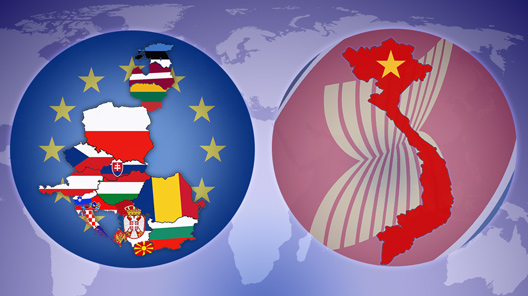It has been 65 years since the Central and Eastern European (CEE) Countries, the very first countries in the world, recognized and established diplomatic relations with the Socialist Republic of Vietnam. The multi-lateral cooperation between two sides has been well cultivated together by many generations of leaders on the basis of mutual trust, understanding and willingness.
Thanks to the long, good relationship and trust to build upon between two sides, CEE enterprises coming into the Vietnamese market are well received and supported, not only by the Vietnamese partners themselves but also government officials who might have once been there for training and education and speak the language. Moreover, CEE countries, businesses and people also have a lot in common with Vietnam’s current challenges and chances.
Especially in the phase of transition since 1990 CEE countries were opening up for globalization and transforming towards functioning market economies. The CEE companies’ experience through this period not only helps them understand the processes and difficulties Vietnam is facing, but also enables transfer of expertise and best practice examples. Many of them have come to Vietnam and become very successful.
The Polish businesses are mainly involved in finance, insurance, ports, information technology, pharmaceuticals and medical devices, food, sweets, beverages, high technology, electricity and energy, renewable energy, technology and environment treatment equipment, rail transport and roads, mining, cosmetics and consulting; the Hungarian companies seek opportunities in information technology, medical equipment, food and drinks, and environment and water treatment; Czech and Slovakians are clustered in automotive, electrical engineering, precise engineering, advanced materials, energy and mining industry; while Austrian enterprises, on the other hand, focus on health care, railway infrastructure, oil-field equipment, animal nutrition, firefighting and vocational training etc. In short, all 15 CEE countries are present in all sectors.
With the coming Free Trade Agreement between the EU and Vietnam, along with the economic, social and territorial cohesion among European Union (EU) countries, trade promotion in traditional markets like Central and Eastern Europe offers the shortest way for Vietnamese enterprises to access the EU market.
However, like most European companies, businesses originating from Central and Eastern Europe face several challenges to do successful business in Vietnam. Firstly the general issues of market entry difficulties apply like in any other country where new entrants do not have a strong network yet and face unclear or overlapping regulations. In addition to having a vast network, the successful penetration into a new market requires good knowledge of macro and micro environment.
Normally, it will take companies some time to know and understand the country’s rules and regulations, contact points and bureaucratic necessities. In fact, many procedures to undertake and long time to acquire when starting a business in Vietnam make it among the most complex start-up environments in the world. Besides, its inadequate infrastructure is another big drawback when SMEs consider putting the country into their investment portfolio.
Even worse, transport and electricity, the two weakest infrastructure sectors in Vietnam, are actually among the decisive factors for not only new entrants but also existing ones to compete in the market. Nevertheless the good, old relationships between CEE and Vietnamese enterprises, individuals and officials, provides tremendous opportunities as CEE businesses look rather to Vietnamese market prospects than other ASEAN countries, thus if the abovementioned difficulties can be eradicated, CEE and Vietnam have a starting advantage for each other in the economies of the EU and ASEAN.
Amid the above mentioned facts and prospects, CEEC, an independent non-profit organization, was formed with the purpose of promoting the cooperation between businesses as well as individuals from 15 Central and Eastern European countries (Austria, Bulgaria, Croatia, Czech Republic, Estonia, Hungary, Latvia, Lithuania, Macedonia, Montenegro, Poland, Romania, Serbia, Slovak Republic, Slovenia) and Vietnam.
It is expected to enhance the cooperation, develop the relations in term of economic, finance, commerce, investments, and trade promotion between Vietnam and these above stated countries. The Executive Committee is composed of professionals coming from CEE countries with various backgrounds and many years of experience in Vietnam in different areas such as consulting, sales, marketing, education, hospitality management, finance, and trade promotion.
Having firsthand experience about the advantages and difficulties of doing business and living in Vietnam, CEEC has been established as the very first CEE Chamber of Commerce at the right time of economic prosperity where all member businesses and individuals can share their experiences of transition, progress and sustainable socio-economic development. CEEC provides services in Vietnam for any CEE related business: from CEE companies trying to get a foothold in Vietnam; business professionals keen to expand their business across borders; Vietnamese businesses seeking opportunities of collaborating with CEE; and to CEE and Vietnamese nationals collaborating in diverse areas. CEEC is its members’ info-hub in terms of events, regulatory questions etc. in Vietnam.

